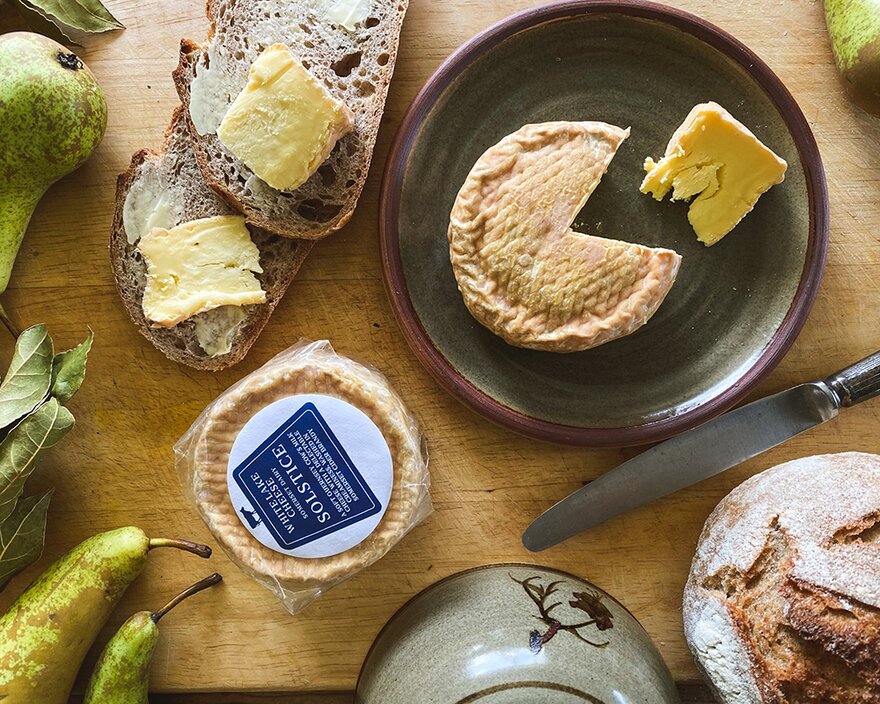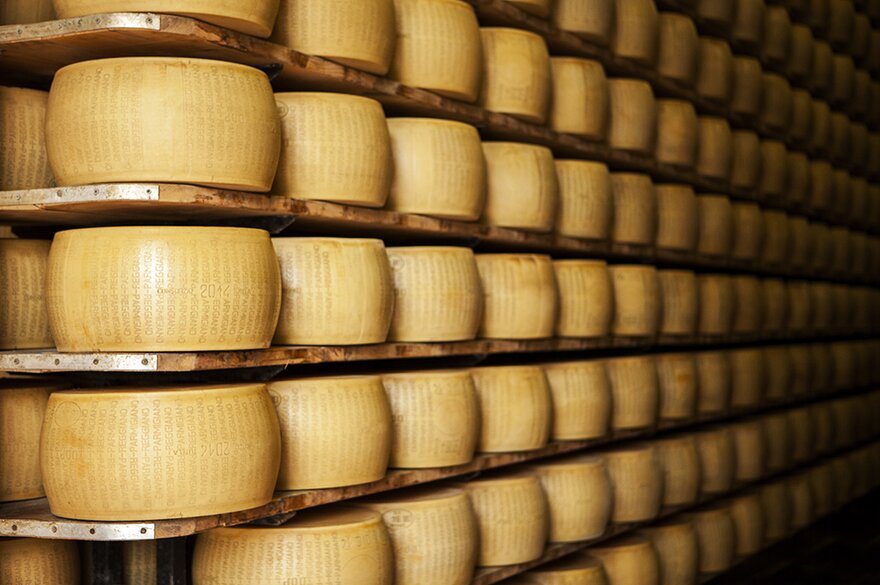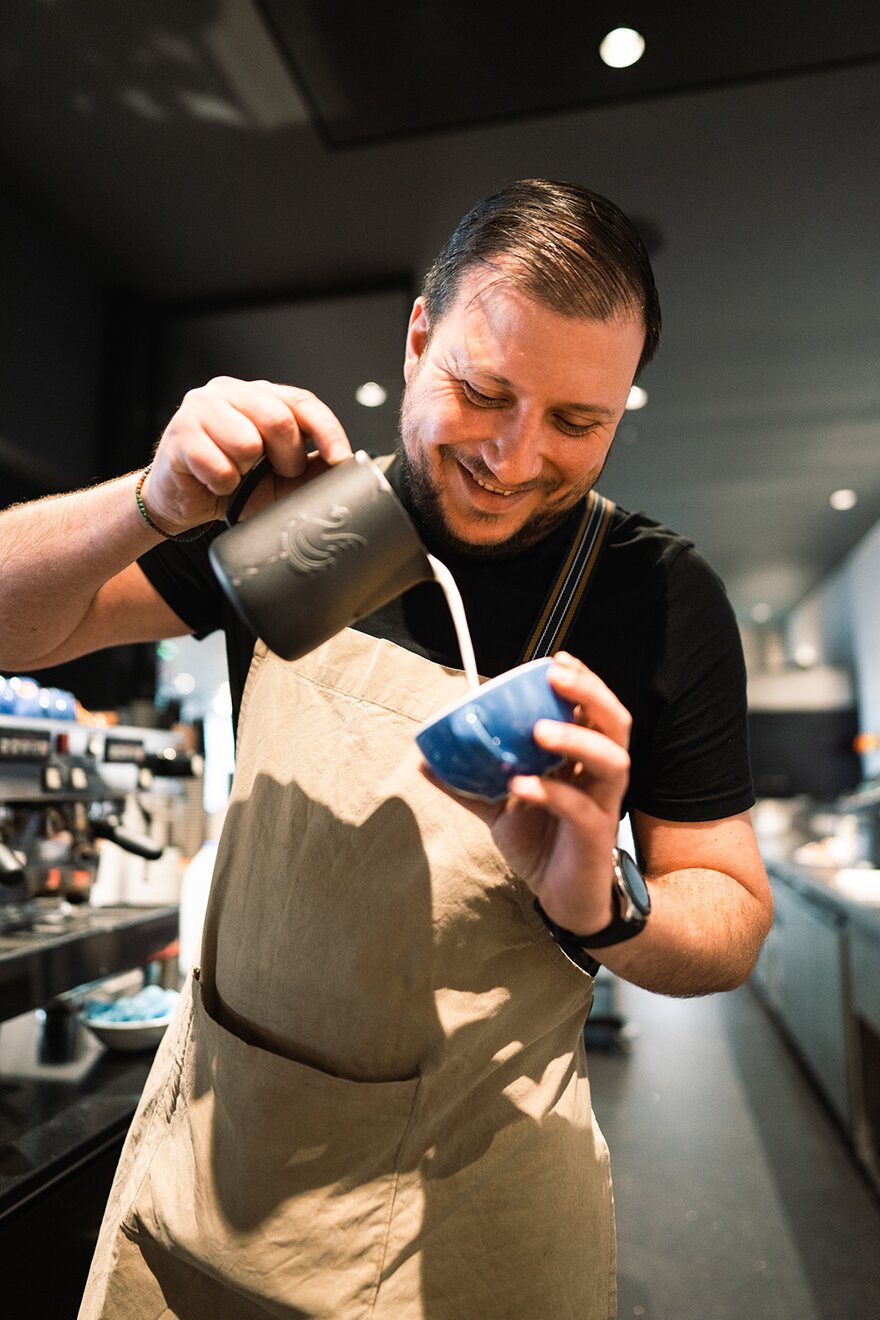Demonising dairy may be a thing of the past, with producers creating gut-friendly and environmentally sound cheese, yogurts and milks.
These days most restaurant menus will often have the word ‘free' tagged on the end of ‘dairy'. So much so, that some would go as far as to say that dairy is being demonised.
Certainly, allergen concerns and the growing trend of plant-based eating have led many restaurants to explore an exciting range of new dairy substitutes. And with efficiency the priority in the kitchen, eliminating dairy in dishes in favour of one-size-fits-all, non-dairy alternatives may also help streamline busy operations.
But as chefs and diners will testify, it's not that straightforward. Dairy products such as cheese, milk, butter and yogurt are the most cost-effective and straightforward ingredient choices in so many recipes, from pizza to cheesecake, elevating dishes and imbuing them with flavour and texture. And now dairy producers have started the fight back, upping the ante by playing up the health and functional benefits of dairy, its pre- and probiotics and protein, its provenance and the role of dairy farms as environmental stewards.
Dairy for good gut health
Marc Burns, foodservice controller at kefir supplier Biotiful Gut Health, says sales of its kefir products are "going like a train". Biotiful's kefir is made with British milk and has billions of live cultures as well as being a source of calcium and protein, with no added sugar and vitamins B12 and B2, ticking all sorts of dietary boxes.
Biotiful started in retail, achieving 57% volume growth in the last year, and is now moving into restaurants such as Soho House's High Road Brasserie in Chiswick, London, which is serving its kefir yogurt with blueberries, dates and cacao nibs. Biotiful also supplies sports venues and universities.
"For us, functional dairy – what we call dairy-plus, such as protein yogurts and kefir – is bucking the dairy-free trend and is where the growth is," says Burns. "Kefir as an ingredient seamlessly enhances traditional dairy-based recipes, offering a twist to culinary creations. Inclusion in establishments such as Soho House underscores kefir's rising popularity, among chefs and consumers alike."
Nutritional quality of dairy
Diners are having a burgeoning interest in the nutritional qualities of what's on their plate, recent research from Irish Food Board Bord Bia suggests. Its report, Striking the Balance: Plant, Protein and the Planet Report 2023, found that 79% of UK consumers claimed nutritional value was the most important influencer for them when it came to choosing food and drink.
Dairy products offer important nutritional qualities that diners value and assurances about provenance can be tied in with these health messages, says Bord Bia UK category manager Estelle Alley. She says that new data from state agriculture agency Teagasc and national food innovation agency Food for Health Ireland reports that Irish grass-fed milk from herds grazing in open pastures contains more beneficial nutrients than milk from conventional indoor-feeding practices. The new findings indicate that grass-fed cows produced milk with an 83% increase in Omega-3 fatty acids and higher levels of unsaturated fatty acids.
Alley comments that alongside these nutritional upsides: "The farming methods reinforce proof points that diners look for when it comes to both animal welfare and sustainability, providing further reasons for chefs in the UK to continue to buy grass-fed Irish dairy for their menus."
Sustainable cheese
Cheesemaker Roger Longman of White Lake Cheese in Somerset, a third-generation farmer, also believes showcasing dairy as a sustainable option is the way forward for restaurants. He keeps a herd of Toggenburg, British Alpine and Saanen goats and generates solar power on-site to help run the farm and its cheesemaking operations. He makes 33 different goat, sheep and Guernsey cow milk cheeses that are sold via wholesalers to London restaurants.
Longman comments that following Brexit there has been a move towards restaurants sourcing British cheese rather than buying from France and, thanks to not-for-profit organisation Academy of Cheese, there is better awareness among chefs of British cheese varieties, making purchasers more discerning in their choice.
The trend being seen in restaurants now is for washed rind cheeses, he says. "People are more understanding that it is not just the actual cheese, it is the flavour from the rind that can make the difference. You get that unctuous taste, and the cheese is squishy, not runny. The chef can cut it without it oozing before being served and it will hold its shape."
Also banging the drum for a positive approach to dairy as an ingredient and as an industry is Italy's Parmigiano Reggiano Consortium, which wants to focus attention on the provenance of its cheese, one of the most popular Italian cheeses in the UK.
Parmigiano Reggiano is recognised as having Protected Designation Origin (PDO) status, meaning that it must be produced in a small area of northern Italy using the methods established by the product regulations.
In June 2023 the Parmigiano Reggiano Consortium launched a three-year Taste of Europe campaign co-funded by the European Union to promote its products' PDO status. The campaign was initiated to educate and inspire both trade and consumer audiences on its heritage cheese, and to demonstrate its versatility in not only Italian cuisine, but within dishes from all around the globe.
The Parmigiano Reggiano Consortium is also highlighting the nutritional credentials of Parmigiano Reggiano. The cheese is naturally lactose-free and does not contain preservatives or additives, and is made with only three ingredients – milk, salt and rennet. Additionally, it's high in calcium and a source of minerals.
Flexible options
Foodservice caterer BaxterStorey seeks to "keep an open mind" in its approach to its dairy and non-dairy ingredient choices. Rik Razza, head of chef development, says it encourages customers to embrace a flexitarian approach, rather than demonising dairy: "With the right level of passion and innovation, taste does not need to be compromised when ensuring dairy dishes have a lower environmental impact," he says.
"One way we achieve this is by partnering with suppliers like organic milk producer Mossgiel Milk, which uses traditional dairy farming techniques to create local, organic and sustainable milk with a focus on the highest standards of animal welfare, boosting biodiversity and producing a premium product."
A healthy amount of dairy is often better than highly processed dairy-free alternatives, Lizzie Hennig, head of nutrition at BaxterStorey adds. "For example, when preparing dishes, we encourage our chefs to use less butter rather than excessive use of margarine."
While dairy products are often seen as problematic from the point of view of carbon footprint, in fact it is not just dairy that needs to prove its provenance to consumers. Plant-based products should not escape scrutiny, argues Tony Holmes, chief executive at Glebe Farm in Cambridgeshire, which produces gluten and dairy-free oat milk.
He says: "Although 91% of dairy milk is produced in Britain, more than 80% of oat drinks are imported. This comes as a surprise to many consumers, particularly those who have switched to a plant-based diet because of concerns over the environmental impact of what they consume.
At Glebe Farm Foods, oats are sown, grown, milled and packed in the UK, allowing them the lowest food miles on the market, he adds.
Dairy or dairy-free, the arguments about what ‘inclusive' really means are still being finessed. The challenge for operators is to strike the balance between innovation and tradition and dairy and non-dairy dishes to keep menus interesting and ensure satisfaction all around, including among the many turophile diners (that's Greek for cheese lover).
In the meantime, expect to see more gut-healthy fermented products, such as kefir, protein yogurts and shakes strutting their stuff on menus.
Milkshake it up
Some 98% of people consumed milk of one type or another in the three months up to April 2023, according to Mintel's Dairy and Dairy Alternative Drinks, Milk and Cream UK 2023 report.
Standard cow milk enjoyed extensive usage at 88%, with plant-based alternatives at 32%. Some 80% of plant-based milk users also reported using standard animal milk, showing how uptake is mainly fuelled by flexitarians.
Suppliers
BaxterStorey www.baxterstorey.com
Bord Bia www.bordbia.ie
Biotiful Gut Health www.biotifulguthealth.com
Glebe Farm www.glebefarmfoods.co.uk
Parmigiano Reggiano Consortium www.parmigianoreggiano.com
White Lake Cheese www.whitelake.co.uk












